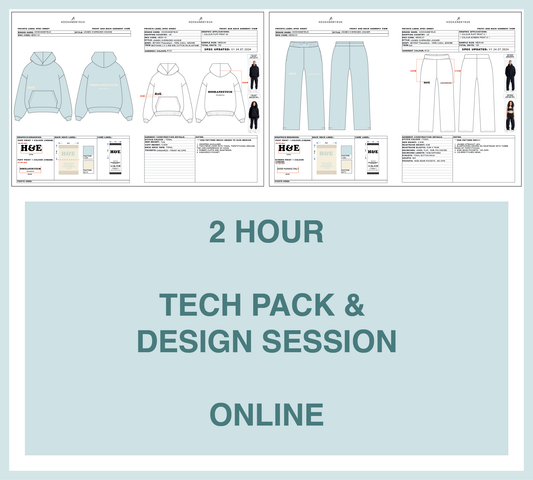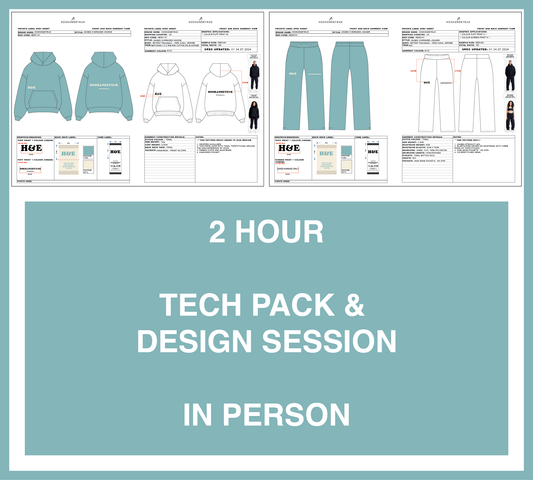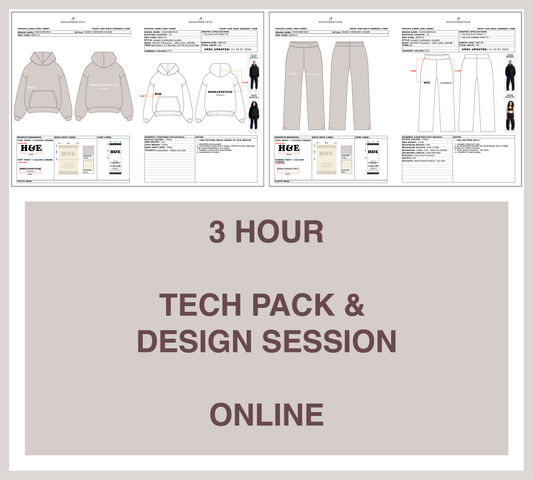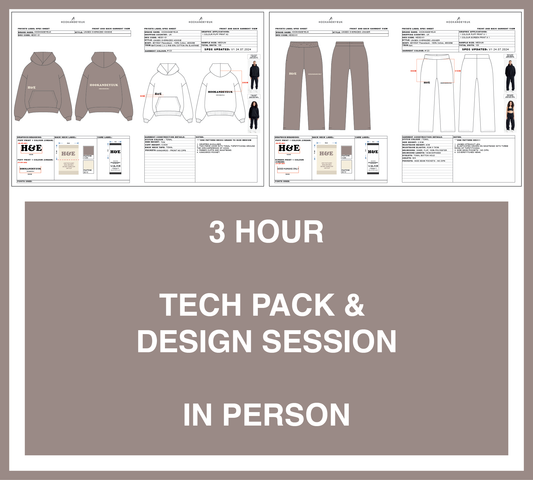When you’re starting out with your clothing brand, it might seem like a great idea to undercut the big brands on price, thinking that it will attract more sales. In reality, as a new start up brand this can be a disastrous technique that is not sustainable for you in the long term.
As a new brand, it’s easy to fall into the trap of not pricing your items high enough. You worry that if the price is too high it will put people off, you’re a new brand that nobody’s heard of, you want to be ‘affordable’ and undercut the big brands so that customers will come to you instead. Sound familiar? I hear this all too often when customers first approach us! Now there’s nothing wrong with wanting to be a more value-level brand, and if you’re interested in learning more about brand levels and pricing, take a look at our blog on Fashion Pricing Strategy. But today we’re going to explain why trying to compete with big brands on price is a bad idea as a new start-up
High volume = lower cost.
Big brands dominate the value market; low-cost unit prices are achieved by high volume. This basically means that the higher quantity you order, the more it drives your unit cost down. Bigger brands are able to place orders for thousands of units, meaning their unit cost is significantly lower, so they can afford to drop the retail price whilst still making a profit. Most new start-ups will begin with low MOQ manufacture due to funds and needing to grow a customer base and brand awareness. Your unit costs will therefore be significantly higher than big brands and there is simply no room for you to compete on unit quantity and cost.

A small start-up won’t have the same advantages as a big brand built up through experience, recognition and success, such as;
• Big budgets
• Wide networks
• Brand loyalty
• Market Exposure
• Negotiating power with suppliers
Sacrifices made for price
Competing on price means compromising value. If there’s only so much money in the pot, it either means it’s spread very thin or you’re making major sacrifices in categories such as fabric quality, ethical manufacture, product quality, customer service.
I’m not convinced that the lower-price technique ever actually works anyway – think about it, faced with an item of clothing, one from a well known popular brand, one from a new start-up – are you going with the start-up, JUST because they are lower cost? Because if you don’t have good imagery, good reviews, easy to understand sizing, and a quality-looking product with desirable features, I’m still not buying. Call me high maintenance but I need assurance that they are worth my money, no matter what that price tag is.
If I did happen to be enticed by what seems like a bargain, but I received it and it wasn’t up to scratch on fit, fabric or quality manufacture, I’m certainly not coming back. I’d rather pay more and have confidence in my purchase than order something based solely on price and be disappointed. Loyal customers stay for product quality, customer experience, or brand alignment, not the lowest price. As someone that has now worked in the fashion industry for many years, a very low price point is actually a red flag to me that the brand hasn’t done something right.
Price Wars Devalue Your Brand
Don't try to win the race to the bottom; here's what’s at the bottom: razor-thin margins, burnout, and eventual failure. Instead build a solid brand strategy;
• Focus on solving a specific problem well. Think about your brands USP (unique selling point – see our blog here for more).
• Build a brand that stands for something your audience cares about – you want to be a brand desired for its substance, not its price point!
• Deliver a memorable experience that keeps customers coming back.
• Use your agility and authenticity to outsmart, not outspend.

In Conclusion
Build value, not discounts. Start-ups don’t win by being the cheapest—they win by being different, providing better customer service, being more meaningful, and providing good quality garments that last and have been made with a conscience (like Hook and Eye UK do!). Competing on price against established giants is a fast track to being overlooked, underpaid, and burned out.
My final tip is, don’t let the imposter syndrome get you! You might be new to this but if you put the hard work in and focus on building a brand with authenticity and quality then you have a solid foundation for success. Don’t be scared to price your garments for what they (and you!) deserve.
Love, Bethany
Hook and Eye UK








